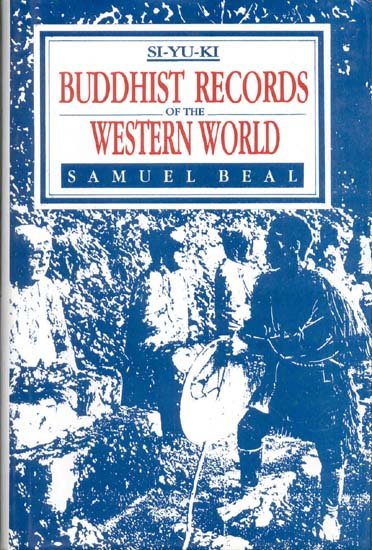Buddhist records of the Western world (Xuanzang)
by Samuel Beal | 1884 | 224,928 words | ISBN-10: 8120811070
This is the English translation of the travel records of Xuanzang (or, Hiuen Tsiang): a Chinese Buddhist monk who traveled to India during the seventh century. This book recounts his documents his visit to India and neighboring countries, and reflects the condition of those countries during his time, including temples, culture, traditions and fest...
Chapter 14 - Forms of Politeness used in India
There are nine methods of showing outward respect—(1) by selecting words of a soothing character in making requests; (2) by bowing the head to show respect; (3) by raising the hands and bowing; (4) by joining the hands and bowing low; (5) by bending the knee; (6) by a prostration;[1] (7) by a prostration on hands and knees; (8) by touching the ground with the five circles; (9) by stretching the five parts of the body on the ground.
Of these nine methods the most respectful is to make one prostration on the ground and then to kneel and laud the virtues of the one addressed. When at a distance it is usual to bow low;[2] when near, then it is customary to kiss the feet and rub the ankles (of the person addressed).
Whenever orders are received at the hands of a superior, the person lifts the skirts of his robes and makes a prostration. The superior or honourable person who is thus reverenced must speak gently (to the inferior), either touching his head or patting his back, and addressing him, with good words of direction or advice to show his affection.
When a śramaṇa, or one who has entered on the religious life, has been thus respectfully addressed, he simply replies by expressing a good wish (vow).
Not only do they prostrate themselves to show reverence, but they also turn round towards the thing reverenced in many ways, sometimes with one turn, sometimes with three: if from some long-cherished feeling there is a call for marked reverence, then according to the desire of the person.
Footnotes and references:
[1]:
To kneel on all-fours.—Wells Williams.
[2]:
"K'i sang", to bow to the ground.—W. W.
